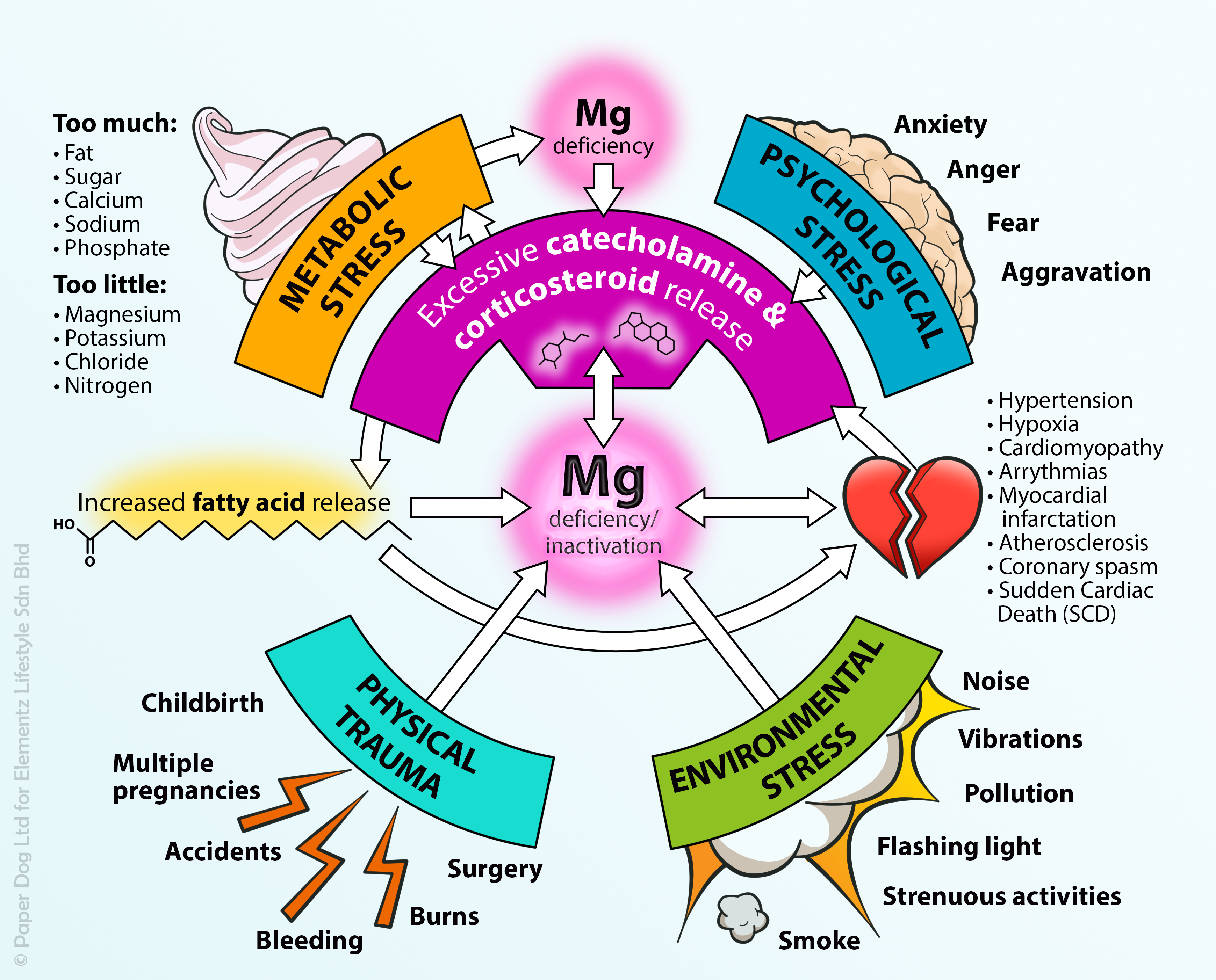"..without magnesium, the calcium that we take in cannot be utilized."
While calcium is most commonly talked about when addressing the issue of bone health, the importance of magnesium is overlooked. What people do not realize is that without magnesium, the calcium that we take in cannot be utilized. This same calcium that is not used often just ends up in all the wrong places: on bones rather than strengthening them; hardening arteries and being deposited between joints, amongst other problems. Calcium is easily and readily available from our food whilst magnesium is not as easily available. What is even more detrimental to our health is to be magnesium deficient and unaware of being so, as a significant number of illnesses have been linked to it. In this day and age, most people living in urban environemnts are magnesium deficient.
Magnesium is needed in over 700 biochemical reactions in our bodies, and unfortunately, most urban dwellers are magnesium deficient.

Inspired by the Magnesium & Stress illustration in Mildred Seeling's 'Consequence of Magnesium Deficiency on the Enhancement of Stress Reactionsl Preventative and Therapeutic Implications (A Review)' pg 6.
- Maintain normal muscle and nerve function
- Release energy from muscle storage
- Manufacture proteins
- Regulate your body temperature
Magnesium is needed for over 700 biochemal reactions in our bodies.
Oral magnesium supplements come in various forms, such as: magnesium taurate, magnesium glycinate, magnesium citrate, magnesium malate, magnesium oratate and magnesium chloride.
Elementz Magnesium products are all magnesium chloride based, with our source being the ancient Zechstein seabed. Magnesium chloride is the most bioavailable form of magnesium, ie, best absorbed by your bodies. Our products are all used transdermally, which means the magnesium is absorbed through your skin.
If you are already taking an oral magnesium supplement (tablet/capsule), just know that are probably are absorbing only 20-50% of it at best. And if you increase your dosage too much, you are most likely to end up with a case of diarrhea. This is what sets topical magnesium products apart from all other forms of magnesium supplementation: they are absorbed transdermally (through your skin).
The Recommended Dietary Allowance (RDA) for magnesium for healthy individuals is as follows:
Adult males: 400-420 mg
Adult females: 310-320 mg
Pregnancy requires about 350-360 mg daily and lactation, 310-320 mg.
Many notable medical doctors nowadays recommend dosages upwards of 500 mg.
A formula to keep in mind when trying to figure out your own dosage:
For individuals with healthy diets, average amounts of activity and little to no stres 6-8 mg per kg of body weight.
For those with high-stress, illness or more than average physical activity: 10 mg per kg of body weight, minimum.
Contraindications for oral magnesium:
The absorption of quinolone antibiotics, tetracycline antibiotics, nitrofurantoin, levothyroxine, tiludronate, lendronate and warfarin are hindered by magnesium. So if you are taking magnesium orally, it's suggested to take it 2 hours away from the aforemmentioned.
Topical magnesium products are not contraindicated with oral medications as above.
Myasthenia gravis: do not use any form of magnesium.
Kidney dysfunction and excessively low blood pressure/heart rate: consult with medical professionals first. Often okay with topical magnesium in small quantities.
